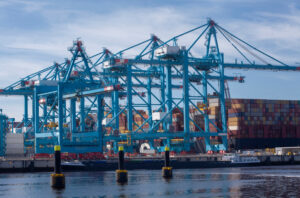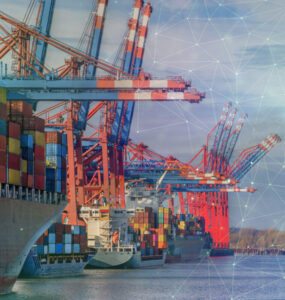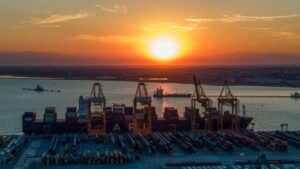Automation seems to be catching on within the port industry, with companies such as Abu Dhabi Ports hiring more staff who are able to carry out a whole spectrum of port operational activities and a full-range of marine services.
The Port of Antwerp has also recently acted on the current trend, by announcing plans to develop port and terminal training in India; a feat that aims not only to provide training for port and terminal professionals, but also to develop relationships between the Port of Antwerp and its trading partner, Jawaharlal Nehru Port.
DP World is among the terminal operators who are actively engaged in offering their own learning and development programmes to develop the skill-sets of both younger and older people in a variety of port segments, including leadership and management training, and operational equipment training, highlighting that training is still important and recognised in the time of increased automation.
Dr Yvo Saanen, Managing Director of simulation and emulation specialists TBA, states: “[Training is] very important. Humans still make all key decisions, from yard planning to equipment deployment to vessel planning. Although there is system support, this is not trivial.
“The support provided by the TOS is limited, and many factors play a role. The decisions have to be taken in a short time frame. Moreover, humans play a key role when things do not go as planned. They have to improvise, and in an even shorter timeframe, they have to make decisions.”
(Source: iStock)
Decision-making is a key factor that sets apart humans from advancements in container terminal technology. However, recent incidents, including complaints from Australian port workers of DP World’s failure to increase the permanency and job security of its workforce as a result of automation, and US West Coast ports’ difficulty to implement automation due to the value placed on manual labour at its ports, as evidenced by recent strike action, show that technology can be an issue for ports, with traditional and organised work forces.
Despite this difficulty and the issues surrounding recent trade union disagreements, there is an understanding that as processes become more automated, there is a greater need for new skills and that people’s roles are changing because of this. Companies such as TOS specialist, Navis are making a concerted effort to combine people and processes in order to harmonise the working environment at ports, as are emulation providers TBA, with its virtual terminal concept that utilises its ‘Oculus Rift’ technology, allowing port workers to walk around and train in a virtual terminal before it is even built.
Paul Verkoyen, CEO of Antwerp Port Training Centre, said: “Luckily, the awareness to properly train employees is increasing. Due to the implementation of the newest technologies and in order to ensure a steady operational flow, many employers are aware of the importance of a properly trained work force.
(Source: iStock)
“Certainly the upcoming regions such as Central and Latin America: they look at the European markets to provide solutions on matters such as sustainability, waste management, but are also more aware of the importance of human relations, improvement of working conditions.”
As well as training, technology could also provide much support for developing operational processes. This could also be multi-faceted as training could relate to many different areas in a port, including safety and security training. APMT are an example of an operator who has implemented safety measures at its ports to lower risk of trucker injury, as well as re-enforcing safety rules and regulations to influence positive attitudes around safety training.
In summary, humans still play a key role within the port industry, as they are an important asset when it comes to decision-making, and recent developments in technology, such as Navis’ initiative to integrate people with technology, and TBA’s virtual training concept, could prove to be an ideal process for streamlining the supply chain and for improving port operations.










